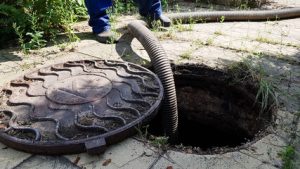Choosing the Pest Control Port St Lucie services for your home takes careful consideration. It involves evaluating licensing, experience, methods, pricing, and customer service.
From termites silently destroying homes to disease-carrying rodents invading families, pest problems require swift professional intervention. By focusing on experience, expertise, and community reputation over lowest-bid pricing, you can save money while enjoying peace of mind.

1. Licensing
When hiring a pest control company, make sure they are licensed and certified. Reliable companies will be able to show you their credentials and will be willing to discuss the types of products they use and their application rates. They will also provide you with copies of product labels so you can make an informed decision about the best pesticides for your specific needs.
The Environmental Protection Agency sets national standards for applicator certification, but state regulations vary. For example, a state requires all pesticide applicators to pass a core exam on pesticide laws and safety, as well as take a category-specific test for the type of work they do. They also requires applicators to follow record-keeping and reporting regulations.
Licensing requirements for pest control professionals aren’t just regulatory hoops — they protect the public from unnecessary harm. This is especially true when dealing with restricted-use pesticides, which require special training and a license to handle due to their potential health and environmental risks.
A licensed pest control company is required to maintain proper licensing throughout the year and to pass a recertification exam every four years. This ensures that they continue to have the necessary knowledge and skills to apply the most effective methods for the specific type of pest infestation they encounter in their work.
A pest problem in a home or commercial facility can be a nuisance and a health hazard to employees, customers, vendors, residents, and pets. Swatting flies is just a temporary solution and won’t solve the root cause, which requires the expertise of a professional. Standard’s team of licensed technicians is well-equipped to tackle a wide range of pests in homes, buildings, and commercial facilities.
2. Experience
Pest control services are essential to keeping homes safe and hygienic. They provide preventive treatment, eradicating existing infestations and preventing pests from returning. They also offer follow-up inspections and pest management plans to keep your home or business pest-free in the long run.
Professional pest control companies use advanced tools and methods that DIY solutions can’t match. When evaluating providers, prioritize experience and a solid reputation in your community over lowest-bid pricing. These factors will help you find the right partner to safeguard your property and health over the long term.
Choosing the right pest control service will help you avoid costly repairs and recurring infestations. Ask providers to explain their methods and safety protocols, and look for eco-friendly options if you are concerned about chemicals or have children or pets. You can also choose providers who offer transparent pricing and detailed estimates. This will allow you to compare rates and costs before making a final decision.
While eliminating pests in your home is a priority, you can also reduce their presence by limiting access points through which they can enter. Sealing cracks and openings in your walls, windows, and foundation will discourage them from entering your home, as well as ensuring that doors and screens are closed when not in use.
In addition to providing a clean and hygienic environment, pest control is important for protecting public health and safety. Pests like rodents, cockroaches, and bed bugs pose serious health risks that can affect people of all ages. In fact, rats can contaminate food and water supplies and cause disease, while cockroaches trigger asthma and allergies in children, and bed bug bites can lead to secondary skin infections.
3. Methods
A pest control service should offer a wide range of methods to ensure they can provide the right solution for any pest problem. Choosing the best method depends on several factors, including the type of pest, the severity of infestation, and environmental conditions. Physical pest control methods use traps and barriers to keep pests away, while biological pest control involves introducing organisms into the environment that naturally feed on or affect pests. Chemical pest control uses pesticides to kill or repel pests, but this approach can be dangerous to people and pets if not used correctly.
Natural pest control methods focus on prevention through hygienic measures and sealing cracks and holes to prevent pests from entering a building or living area. These techniques can work well for small problems, but larger infestations may require more intensive treatment. Natural methods also don’t rely on harmful chemicals, making them ideal for homes with children or pets and for environments where reducing chemical exposure is a priority.
Integrated Pest Management (IPM) is a combination of both physical and chemical methods to reduce or eliminate pests. It can be effective for small-scale infestations and is recommended for areas where other methods are not available or when they have been ineffective. IPM requires regular monitoring and maintenance to ensure the long-term success of pest control.
IPM programs can be implemented by pest control services or by building owners and tenants. Apartment residents, for example, can help by practicing good sanitation and hygiene, such as storing food in airtight containers and disposing of trash regularly. They can also report maintenance issues to the property owner and maintain a clutter-free living space to make it less inviting to pests.
4. Pricing
Pest infestations are a serious problem that affects more than just the appearance of your home. Rodents spread over 35 diseases that can be transmitted to humans, including salmonella and hantavirus. Cockroaches can trigger asthma and allergies, while bed bugs cause psychological distress and secondary skin infections from itching. Professional pest control services can protect your family’s health and preserve your property’s value.
When choosing a pest control company, it’s important to compare prices and service options to find the best value. You can start by asking friends and neighbors for recommendations, as well as searching online reviews and ratings. A company with a good reputation in your community is more likely to stand by its work and provide quality customer service.
Pricing varies by pest type and severity of the infestation. For example, removing a simple wasp or hornet nest costs between $150 and $300. More extensive treatments, such as termite or bed bug infestations, require more intensive and specialized treatment methods and will usually cost more. In addition, pest control companies may charge additional fees for cleaning up afterward and performing exclusion work (sealing gaps and repairing cracks).
Choosing the right pest control services can save you time and money in the long run. By keeping up with routine inspections and preventing small problems from becoming major infestations, you can keep your home safe for your family.
As a provider of pest control services, you can help your clients save money by offering a transparent pricing model and flexible contracts. By providing clear quotes, you can establish trust with your customers and build loyalty. Ensure that your prices include labor, product, and treatment material, and other relevant expenses.
5. Customer Service
Customer service is the heart of any business. Providing personalized consideration for each individual client is what sets you apart from your competition and makes customers happy enough to recommend your services, leave glowing reviews, and become lifelong clients.
In the pest control industry, this means being available and responsive to any inquiries. It also means providing a clear breakdown of costs and being transparent with contracts so customers can make the best decisions for their homes.
It also means communicating clearly, both when talking with customers and when sending email or text messages to schedule appointments. This helps reduce confusion and miscommunications that can lead to missed appointments, upset customers, and missed revenue. It also ensures that customers are informed of any changes to their appointment, and that they know the technician is on their way when he or she calls or texts.
This is especially important because pest infestations can be dangerous for homeowners and their families. Rodents carry more than 35 diseases, cockroaches can trigger asthma and allergies, and bed bugs can cause psychological distress and secondary skin infections from excessive scratching. When your team communicates clearly with your customers, it helps prevent them from being overwhelmed and anxious about the dangers of these infestations.
Customer satisfaction is critical to long-term success in any business, and the pest control industry is no exception. It’s often much more cost-effective to keep a customer than to acquire a new one. In the pest control industry, keeping customers happy through superior communication and transparent, flexible pricing leads to repeat business and referrals. It’s no wonder that companies that invest in their customers and employees see greater growth and success.


